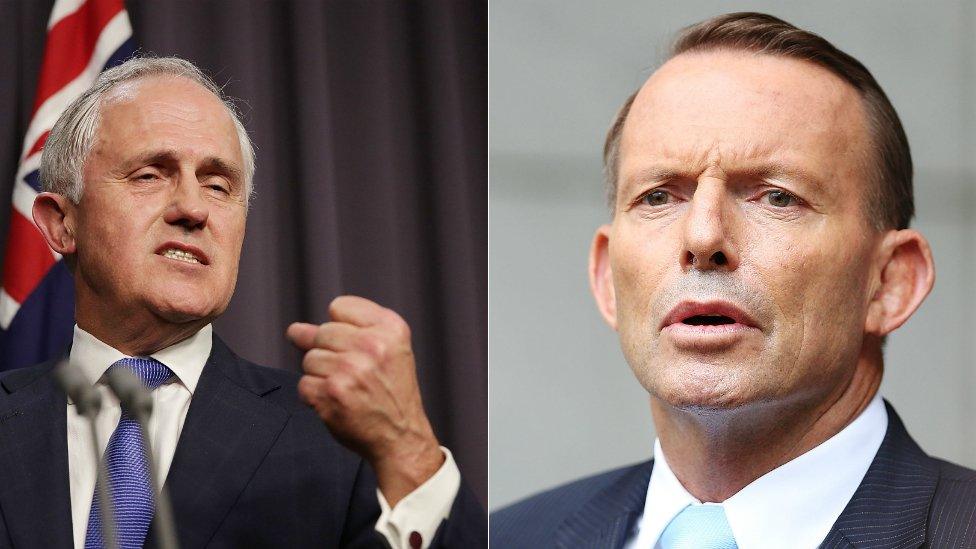Fun's in the fringe at Australia's 'dreary' election
- Published
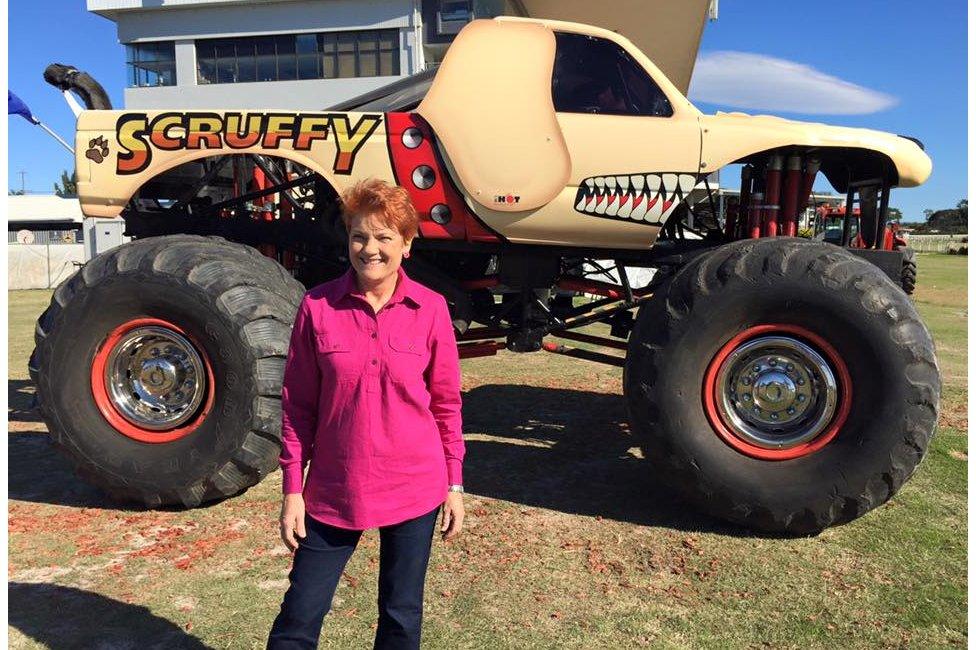
Independent candidate Pauline Hanson used a monster truck to crush cars representing Australia's Labor and Liberal parties
"Australians have to make a choice between a man who has been disappointing recently and a man who has been disappointing his entire life."
That's the scything view of TV comedy writer Scott Abbot of one of the longest election campaigns in Australian history.
His men in grey are Prime Minister Malcolm Turnbull, a millionaire former merchant banker, and his Labor rival Bill Shorten, who came to international prominence as a trade unionist during the Beaconsfield mine disaster in Tasmania, external a decade ago.
"It is very boring and dreary. Two months for an election [campaign] is a little bit indulgent from an Australian perspective given that most of our prime ministers don't seem to last that long," Mr Abbot said in Sydney.
"As a political comedian I have to say I am jealous when I see Donald Trump running around, or Boris Johnson, and I am sitting here trying to make jokes about company tax cuts and education spending."
A lack of quirk
The nuttiness, toxicity and charisma of Britain's EU referendum and the United States presidential campaign stand in contrast to a plodding campaign in Australia, a country where politics can be brutal. Three of the past four sitting prime ministers were ousted by their own party. But the run-up to the latest poll, on July 2, has been far from bloodthirsty.
"I think the quirkiness has been the lack of quirkiness," explains Dr Rohan Miller, a senior lecturer at the University of Sydney Business School.
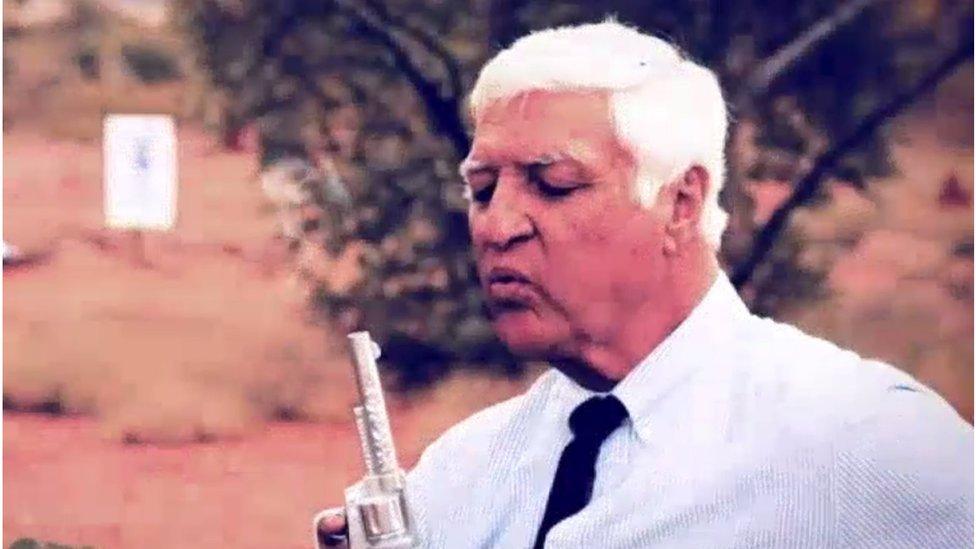
Independent rural MP Bob Katter pretended to kill off his major party rivals in an ad
He sees two major parties being deliberately vague and not wanting to make a mistake.
"In Australian politics people lose elections. They don't necessarily win elections," he says.
"This Australian election definitely lacks any passion at all. Both candidates are very similar and there is a lack of polarity."
Guns, Greens and monster trucks
This marathon joust for power has had its moments, but they have mostly come at the fringes. Pauline Hanson, Australia's most famous former fish-and-chip shop owner, is again running for office.
Behind the wheel of a monster truck at Doomben Racecourse in Brisbane, the controversial flame-haired One Nation senate candidate, ever the self-publicist, crushed two clapped-out sedans, external that symbolised her feelings towards the two main parties.
Then there was the maverick north Queensland MP Bob Katter's now-infamous smoking gun campaign advert, in which he appears to shoot dead two political rivals. Its release just days after the horror in Orlando prompted widespread condemnation, but rather than being chastened and apologetic, Mr Katter insisted that he would not bend "the knee to the politically correct brigade".
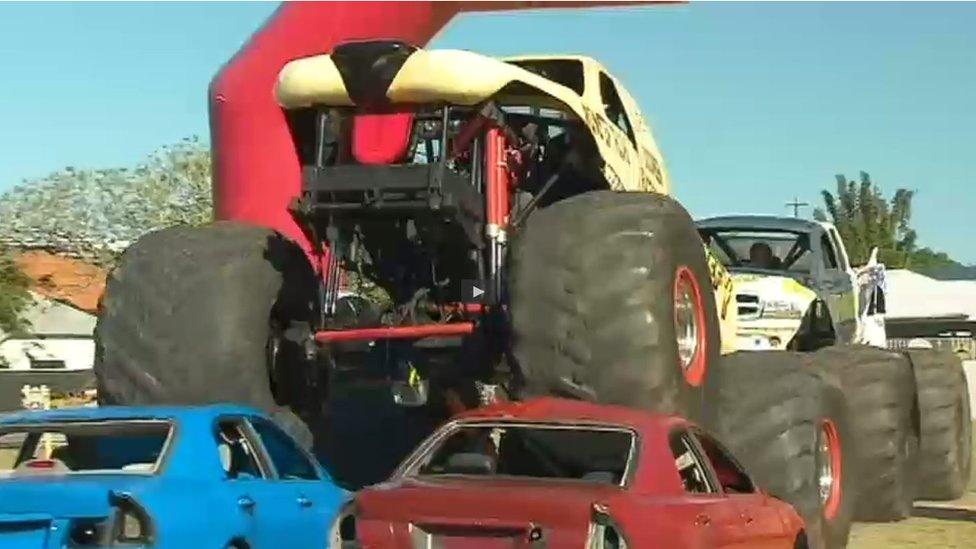
Pauline Hanson said her monster truck stunt showed that was determined to "crush the major parties"
To make his point he joined a busker in the city of Townsville to sing the Johnny Cash hit Don't Take Your Guns to Town.
Dig a little deeper into what is happening beyond the stage managed offerings of Malcolm Turnbull and his "jobs and growth" mantra, and Bill Shorten and Labor's "100 positive policies", and what emerges has the potential to bring spark to this election, according to Dr Miller.
"The big mover has been the Greens party. They really look like they are going to grab some seats. Similarly there seems to be a backlash against both [major] parties and that manifests in what seems to be the imminent election of splinter or minority groups like the [Nick] Xenophon party, who originally started off as an anti-gambling party," he says.
In this election, dozens of parties are fielding hundreds of candidates. As ever, the ballot paper for the Senate that will greet voters in New South Wales is wider than the ballot booth.
Malcolm Turnbull hopes voters will give him control of the Senate. It was the upper house's refusal to pass key government reforms that triggered an early poll and prompted Mr Turnbull to alter the way votes are cast for senators.
Sweet relief
But Dr Meredith Doig, the lead Senate candidate in Victoria for the Australian Sex Party, says the prime minister might not get what he wants.
"It is fairly clear that he changed the Senate voting procedures in order to try to get rid of in his view the somewhat recalcitrant or less-than-corral-able people in the Senate," she says. "I think that could backfire."
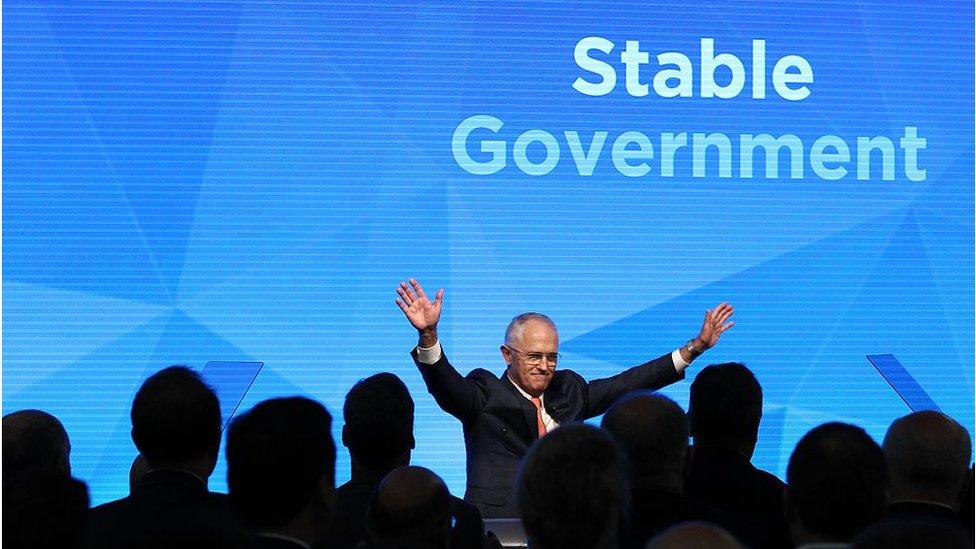
Prime Minister Malcolm Turnbull has emphasised jobs, growth and stability in his pitches to voters
Like most elections, this one will be won or lost on the economy and which side can be better trusted to chart a way to future prosperity as the China-fuelled mining boom fades.
Education, health care and climate change are other essential ingredients, while immigration has been a divisive issue in previous polls.
Both major parties support offshore processing for migrants who arrive by boat, and ABC election analyst Antony Green believes there are good reasons why.
"Within the Australian population there is a significant proportion that do not like immigration, and those people get particularly motivated about boat arrivals. Boat arrivals are seen as losing control of the borders and the previous Labor government was savaged for being unable to stop the boats," he explains.
As the eight-week campaign ambles into its final phase, comedian Scott Abbot is convinced voters will be relieved when it is finally over.
"It is like a giant episode of Antiques Roadshow where you sit through the whole thing but people are really waiting for the final appraisal at the end," he says.
- Published19 April 2016
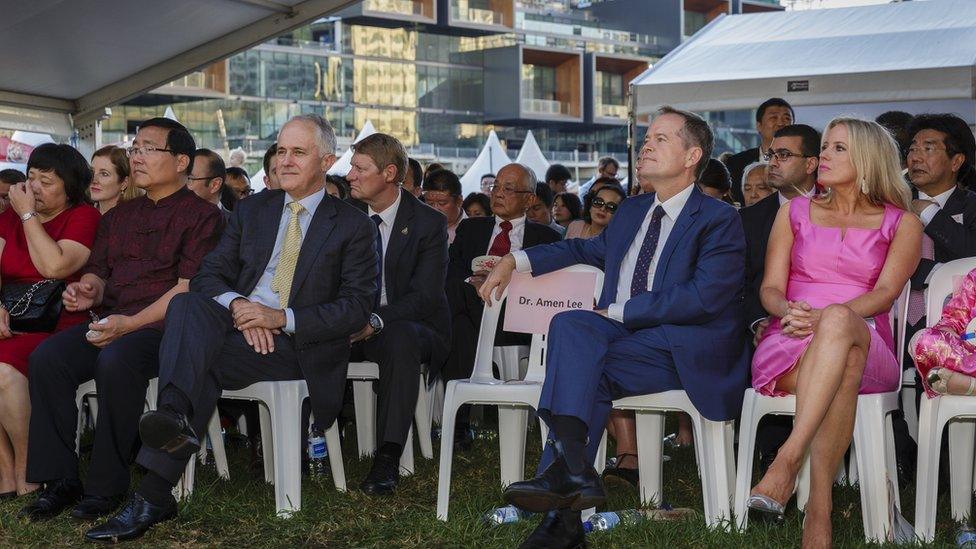
- Published16 June 2016
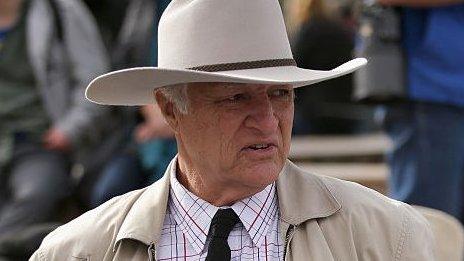
- Published20 June 2016
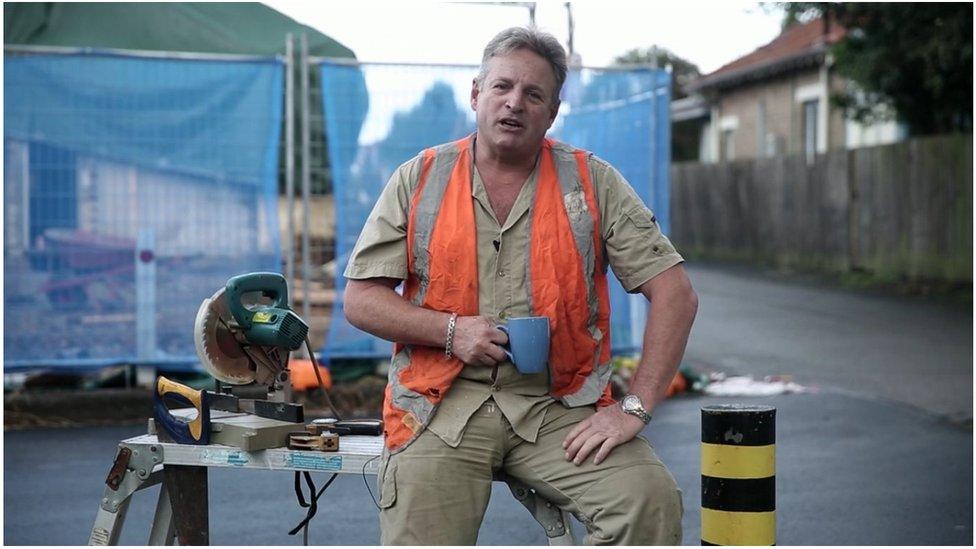
- Published14 September 2015
